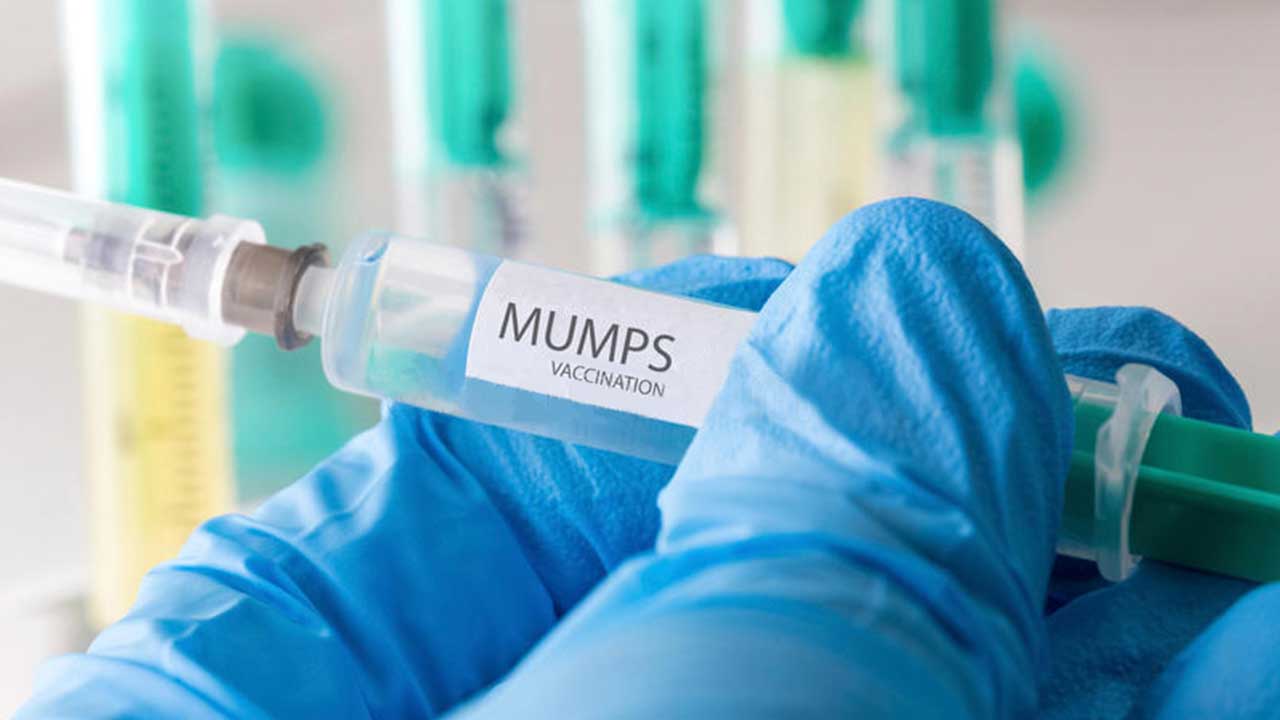Mumps is a viral infection that easily spreads through saliva and mucous. Mumps is common only in those kids who have not received the vaccination. Mumps can affect any part of the body but it mainly affects the salivary glands (parotid glands). The glands swell when infected with the virus.
Earlier this used to be very common but after the introduction of MMR (Measles, Mumps, rubella) vaccines, the cases have become rare.
Mumps – Signs and symptoms
Symptoms start appearing after 2 weeks of infection
Puffy cheeks, swollen jaws, and face
Fatigue, weakness
Fever
Headache
Loss of appetite
Mumps – Cause
Paramyxovirus causes mumps.
Mode of transmission
The virus transmits through saliva and mucus. It spreads by
1. Coughing, sneezing or talking
2. Sharing cups and utensils with others
3. Close contact (kissing)
4. Not washing hands properly and touching items that other people have touched
Mumps treatment
There is no treatment for mumps. Because antibiotics are ineffective on this virus. The virus needs to complete the course. You can only manage the condition with some doctor's prescribed suggestions.
Apply cold or warm packs on swollen areas
Drink lots of liquid
Eat soft foods and take proper rest
Doctors may give OTC painkillers
Complications associated with mumps
Serious complications due to mumps are very rare. It would be good if you got it in your childhood days. Mumps in adulthood can have some possible problems.
1. Inflammation of ovaries, breast tissues in females. In males who have already gone through puberty, inflammation of testicles.
2. Encephalitis – Inflammation of the brain
3. Meningitis – Inflammation in the brain that covers the brain and spinal cord
4. Hearing loss
5. Cardiovascular problems
6. Pancreatitis
7. Miscarriage (if infection occurs during pregnancy)
Mumps prevention - MMR (Measles, Mumps, Rubella) vaccine
This is for active immunization against measles and rubella in infants, children, adolescents, and adults at risk.
Route of administration – Subcutaneous injection
Dose – The first dose of MMR is given to children – 12 months of age to 10 years of age
The second dose of MMR is given any time before the age of six years and thereafter measles and rubella vaccines are recommended.
Children who get this vaccine will be protected against the three diseases throughout their lives.
Minor side effects of MMR vaccine
Rash, fever, swollen cheeks, febrile seizures, and mild joint pain.
Avoid MMR vaccines in case
1. The child had a serious allergic reaction to an earlier dose of MMR vaccine.
2. The child had a medical condition that affects the immune system of the body
3. The child is taking steroids or other medicines that weaken the immune system
4. The child is undergoing chemotherapy or radiation therapy.
The introduction of MMR vaccines has resulted a decline in the incidence of measles, mumps, and rubella infections. However recent reports suggest that there is a re-emergence of mumps infection in the vaccinated population. The reason behind this re-emergence could be the poor efficacy of MMR vaccines. With the purpose of investigating mumps infection in the vaccinated and unvaccinated population, ICMR conducted the study in Chennai. In the study, it was found that the MMR vaccine failed to generate anti-mumps IgG. Low vaccine efficacy of the mumps component of the MMR vaccine was ruled out as the reason for this.
Disclaimer: The content on this site is for informational purposes only, and should not be taken as professional medical advice. Always seek the guidance of your doctor or other health professionals for any questions you may have regarding your health or a medical condition.

 Mumps is a viral infection that easily spreads through saliva and mucous. The MMR vaccine provides protection against this. Read on to know the right age of administering the vaccine and when to avoid it.
Mumps is a viral infection that easily spreads through saliva and mucous. The MMR vaccine provides protection against this. Read on to know the right age of administering the vaccine and when to avoid it.










.jpeg)



.jpg)




.jpg)





.jpeg)

.jpg)


